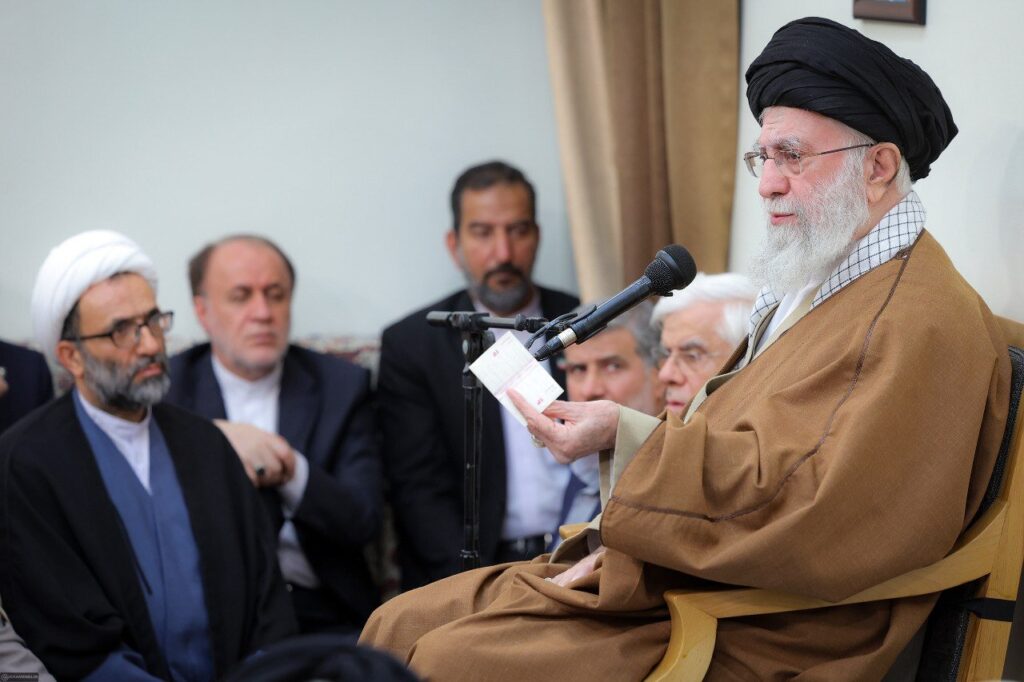Tehran – Islamic Revolution leader Ayatollah Seyed Ali Khamenei met with senior officials in the government’s administrative, legislative and judicial departments on Tuesday
During the meeting, Ayatollah Khamenei called the ongoing consultations in Oman one of the many tasks of the Ministry of Foreign Affairs. He emphasized that national issues should not be dependent on those consultations. He warned against repeated mistakes made during the JCPOA lecture. There, the country’s progress was linked to the outcome of negotiations, leading to a conditional state that hinders investment and development.
Iran and the US were engaged in indirect talks on sanctions and Tehran’s nuclear program on Saturday. Both sides will have an indirect conversation in the second round on the upcoming Saturday. Negotiations have previously been characterized as “positive” and “constructive,” but analysts and Iranian officials believe it is too early to control judgments about what the argument will lead to. Iranians have deep distrust of the United States. In 2018, Tehran was signed, mediated with several countries for over two years.
Ayatollah Khamenei emphasized the importance of ongoing activities in a variety of areas, including industry, economy, construction, culture and major national projects, claiming that “none of these issues have anything to do with Omani consultations.”
The leader warned against both excessive optimism and excessive pessimism about negotiations. He noted that the initial decision to engage in consultations is well-performed and future measures should be taken accurately, keeping in mind that both the red lines on Iran and the opposite side are clearly defined.
Ayatollah Khamenei said these talks may or may not have result, but Iran remains cautious. He expressed distrust to the other side, but confirmed his confidence in the country’s capabilities.
After years of debilitating sanctions, Iran has honed its art of neutralizing or avoiding them, but still strives for it before that.
In dealing with the atrocities committed by the Zionist regime, Aitaola Khamenei condemned deliberate attacks on patients, journalists, ambulances, hospitals, innocent women and children in Gaza. He described these actions as unprecedented crimes that required the extraordinary cruelty that the occupying regime possessed.
Ayatollah Khamenei sought coordinated moves from the Islamic world in economic, political and, where necessary, operational spheres. He emphasized that God’s justice would win over the oppressors, but this would not allow governments and states to escape their heavy responsibility.
In another part of his statement, Ayatollah Khamenei emphasized domestic investment in production as the most effective strategy to combat sanctions. He said lifting sanctions is beyond Iran’s control, but neutralizing their impact is within reach through various methods and internal capabilities. To achieve this would make the country immortal to sanctions.
Ayatollah Khamenei also emphasized the importance of expanding relations with neighboring countries, the economic hubs of Asia and Africa, and other countries, urging ongoing efforts to pursue this direction.
At the end of the conference, the leaders of the Islamic Revolution praised the president’s involvement with other heads of state and the effective work of the Ministry of Foreign Affairs, explaining that they had a very good influence.

